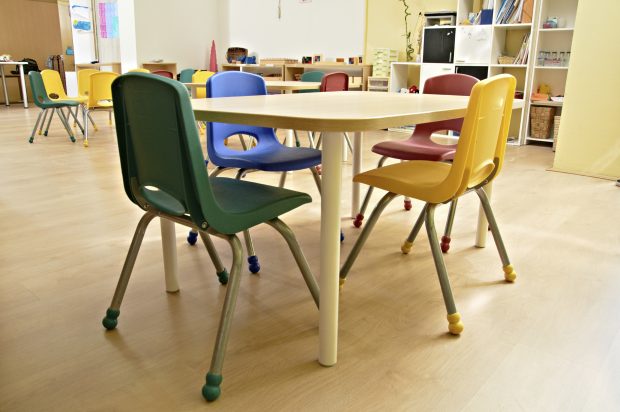
Today’s news review looks at coverage of a report into school funding and a letter from Justine Greening to the Education Select Committee regarding the grading system for our new ‘gold-standard’ GCSEs.
PAC report
On Wednesday, 29 March, the Public Accounts Committee (PAC) published its report on the financial sustainability of schools. This follows the National Audit Office (NAO) report published on 14 December.
The report has been covered widely by outlets including BBC Online, the Guardian, I Online, TES , Schools Week and Telegraph Online.
Much of the coverage suggests that the Department has not realised the financial pressures that schools face. This is not the case and that is why we are helping them make sure they get the best value for money out of every pound of funding they have – which is at the highest level on record. One of the ways we’ve done this is by publishing a new schools buying strategy designed to help schools save over £1bn a year by 2020.
It’s important to see the cost pressures that schools are facing in context. The National Audit Office predicts that schools will face cost pressures of 8 per cent (£3bn) by 2020. But, according to the Institute for Fiscal Studies, that comes after a period of 20 years, from 1996 to 2016, during which per pupil spending has risen in real teams – so with inflation taken into account – by almost 50 per cent.
A DfE spokesperson said:
We will study the report’s recommendations and respond in due course. Standards in our schools are rising with 1.8 million more pupils being taught in good or outstanding schools than in August 2010. We have protected the core schools budget in real terms since 2010, with school funding at its highest level on record at more than £40bn in 2016-17 – and that is set to rise, as pupil numbers rise over the next two years, to £42 billion by 2019-20.
These protections, and the wider investment in the school system, mean that spending per pupil will be over 50 per cent higher in real terms in 2020 than it was in 2000, as set out by the independent Institute for Fiscal Studies.
We recognise that schools are facing cost pressures, and we will continue to provide support to help them use their funding in the most cost effective ways, so that every pound of the investment we make in education has the greatest impact. This includes improving the way they buy goods and services, while our recently published School Buying Strategy is designed to help schools save over £1bn a year by 2019-20 on non-staff spend.
Good pass
Yesterday, Tuesday, 28 March, a letter from the Secretary of State was sent to the Education Select Committee regarding the grading system for our new GCSEs. The new GCSEs, which have been improved in response to international evidence, the challenges for business and demand from parents, will be assessed under a numerical grading system of 9 to 1 with 9 being the highest. The first of these GCSEs will be taken in English and Mathematics in summer 2017 with the remainder rolled out in future years.
The letter sets out the consequences for pupils of achieving a grade 4 and a grade 5. From this summer these will be distinguished as a ‘Standard Pass’ at grade 4 and a ‘Strong Pass’ at grade 5.
The new system has been received positively by the teaching profession but a piece in the TES reported concerns from some quarters regarding the EBacc.
This focuses on whether it is right that pupils should be judged to have achieved the EBacc by gaining grade 4 in the five subjects, while schools will be held accountable for the percentage of pupils who achieve a grade 5 overall in the EBacc.
The EBacc is a set of school performance measures that show how many pupils take exams in a set of subjects – English, mathematics, science, history or geography and a language - the core academic subjects that provide a rigorous education and what the achievements of those pupils were.
The government is determined to continue to raise standards in our schools and to underline that ambition it will publish not just the “standard pass” (grade 4 and above) but also the “strong pass” (at grade 5 and above) in school performance tables.
Achievement at the “strong pass” will be one of the benchmarks used to measure the performance of schools – comparable with the strongest performing education systems. This will not affect individual pupils, but - alongside other performance measures – will allow parents, Ofsted and others to see which schools are getting the best results from their pupils – ensuring we can provide more support to those schools that need it.
As part of this, Ebacc attainment will be published in the same way with performance tables showing how many pupils achieve a standard pass (grade 4 and above) and a strong pass (grade 5 and above) in the new GCSEs that are included in the EBacc subjects. Including EBacc attainment at grade 5 as one of several headline measures for schools underlines our determination to raise standards. Progress 8 will remain the key accountability measure.
Follow us on Twitter and don't forget to sign up for email alerts.